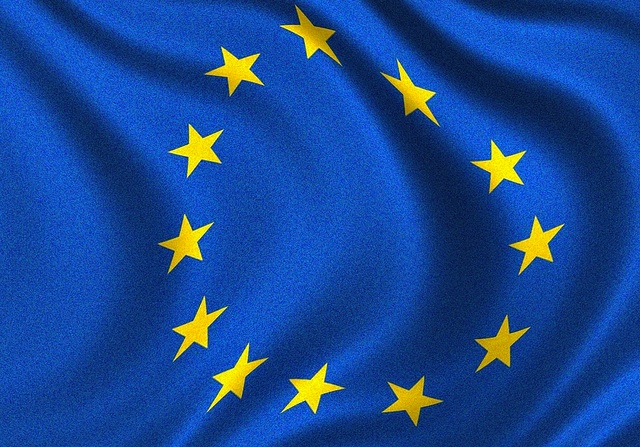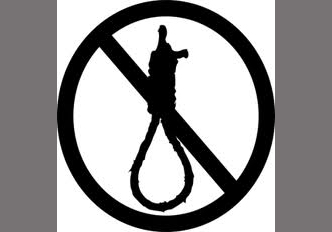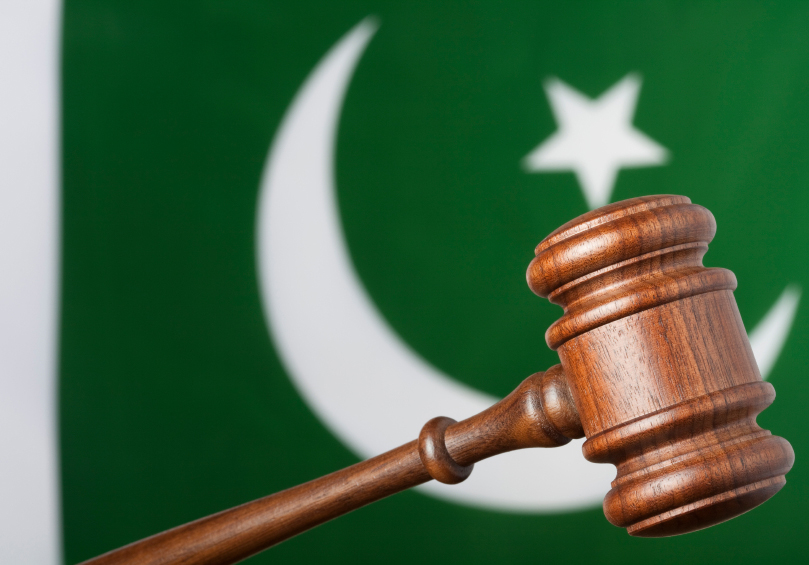
Feb 19, 2016
The ICJ, with other NGOs, today published comments on the proposed EU counter-terrorism Directive, which addresses the “foreign fighters” phenomenon.
The briefing paper analyses the compliance of the proposed Directive with international law, including international human rights law.
In particular, it raises concerns regarding the wide definition of terrorism, and the inclusion of broadly-defined offences of participation in the activities of a terrorist group, public provocation to commit a terrorist offence, receiving training for terrorism, and travelling abroad for terrorism.
The paper makes recommendations for amendment to the text to guard against arbitrary or discriminatory interference with human rights in the implementation of such offences, and to ensure compliance with the principle of legality.
EU-Directive terrorism-Advocacy-Analysis Brief-2016-ENG (full text, in PADF)

Feb 5, 2016
The purpose of this document is to provide clear and updated information on the death penalty regime in Singapore.
In Singapore, about 26 offences carry the death penalty; it is most commonly used for murder (under s300 the Penal Code) and drug-trafficking/importation and exportation offences (under s5 and s7 of the Misuse of Drugs Act). These laws were amended in 2012 and the amendments came into effect on 1 January 2013.
The ICJ opposes capital punishment in all cases without exception.
The death penalty constitutes a violation of the right to life and the right not to be subjected to cruel, inhuman or degrading punishment.
Singapore-Death penalty laws-Advocacy-Analysis brief-2016-ENG (full text in PDF)

Jan 6, 2016
One year into the establishment of military courts to try civilians for terrorism-related offences, the operation of Pakistan’s system of “military justice” shows complete disregard of the right of a fair trial, the ICJ said in a new briefing paper released today.
“The trials by Pakistan’s military courts have reaffirmed fears of human rights groups and the legal community that military trials in Pakistan are secret, opaque and make a mockery of Pakistan’s domestic and international fair trial obligations”, said Sam Zarifi, ICJ’s Asia Director.
In its analysis brief, the ICJ examines the performance of Pakistan’s military courts in the first year of their operation, including their failure to respect the defendants’ right to a fair trial.
Proceedings before Pakistani military courts fall well short of national and international standards requiring fair trials before independent and impartial courts:
- Judges are part of the executive branch of the State and continue to be subjected to military command;
- The right to appeal to civilian courts is not available;
- The right to a public hearing is not guaranteed;
- A duly reasoned, written judgment, including the essential findings, evidence and legal reasoning, is denied;
- The procedures of military courts, the selection of cases to be referred to them, the location and timing of trial, and details about the alleged offences are kept secret; and
- The death penalty is implemented after unfair trials.
In addition to these concerns, the ICJ has also received reports that suspects being tried by military courts have been subjected to torture and ill-treatment in detention and their family members have been harassed and intimidated by military authorities.
These concerns are exacerbated by the military’s refusal to give family members and civil society monitors access to detention centers.
A number of families have also alleged that juveniles are being tried by military courts in contravention of Pakistani and international law standards on the rights of children.
“Pakistan faces a genuine threat from militant groups engaging in acts of terrorism and the Pakistani Government has an obligation to protect all people from such attacks,” said Zarifi.
“But militarizing the judicial process will not lead to justice and it will not control terrorism. This is the lesson from around the world,” he added.
Since the amendments to the Constitution and Army Act one year ago, the Pakistan Government has constituted 11 military courts to hear terrorism-related cases. Military courts have concluded the trials of 64 people, finding the defendants guilty in 40 cases. 36 people have been sentenced to death and four have been given life sentences.
Nearly a hundred cases are still pending before the various military courts in the country.
Eight civilians convicted by military courts in secret trials for their involvement in “terrorist activities” have been hanged.
The ICJ considers these executions unlawful, in breach of Pakistan’s domestic law and its international legal obligations.
The ICJ has urged Pakistan to roll back the system of “military justice” and undertake a comprehensive review of its counter terrorism laws, policies and practices to ensure they are compatible with Pakistan’s national and international legal obligations.
Contact
Sam Zarifi, ICJ Asia Pacific Regional Director (Bangkok), t: +66 807819002; email: sam.zarifi(a)icj.org
Reema Omer, ICJ International Legal Adviser for South Asia (London), t: +44 7889565691; email: reema.omer(a)icj.org
Pakistan-military courts brief-Advocacy-Analysis brief-2016-ENG (full text in PDF)

Dec 11, 2015
The ICJ, jointly with other human rights NGOs, has presented comments on the measures needed to strengthen implementation of European Court of Human Rights judgments, in a submission to the Council of Europe ad hoc Working Party on Reform of the European Convention System.
The NGO comments to the Committee of Ministers Working Party on Reform of the European Convention System (GT‐REF.ECHR) analyse the measures that need to be taken under Chapter C of the Brussels Declaration and Action Plan on Implementation of the European Convention on Human Rights, agreed by Council of Europe Member States in March 2015.
They recommend inter alia that where a state fails to fully execute a judgment, a greater variety of graduated measures should be identified, sequenced, and applied, including measures under Article 46(4) ECHR.
Europe-Brussels Declaration Chapter C.-Advocacy-analysis brief-2015-ENG (full text in PDF)

Nov 26, 2015
Myanmar’s Parliament must abolish or extensively amend its criminal defamation laws to ensure the protection of the right to freedom of opinion and expression, said the ICJ today.
Criminal defamation laws in Myanmar impose harsh sanctions, such as imprisonment, to punish free expression.
The prospect of arrests, detentions, criminal trials and prison time could chill the exercise of free expression of opinions and exchange of information.
The ICJ, the United Nations Human Rights Committee (which monitors and supervises States’ compliance with their international human rights obligations), the UN Special Rapporteur on freedom of opinion and expression and other international human rights authorities and an increasing number of governments consider that criminal defamation laws should be abolished, as they are incompatible with the right to freedom of expression and opinion.
Myanmar’s 2008 Constitution provides for the protection of freedom of expression but sets out broad and ambiguous restrictions that limit the enjoyment of these rights.
In addition, the judiciary of Myanmar currently struggles to adjudicate such criminal defamation cases with impartiality and competence.
The result is that enforcement of the defamation laws can result in violations of a number of international laws and standards protecting human rights, and also could have an overall chilling effect on the freedom of opinion and expression in the country.
Just last month, three people faced criminal defamation charges and were detained pending trial for posting material on Facebook that allegedly defame either the Myanmar army or a political leader.
- Kachin activist Patrick Kum Jaa Lee was arrested in Yangon for allegedly posting a Facebook post showing someone stepping on a photo of an army Commander-in-Chief Senior General;
- Chaw Sandi Tun was arrested for a Facebook post pointing out that an army official was wearing clothes of a similar colour to those of then opposition leader Aung San Suu Kyi; and
- Maung Saungkha was arrested for allegedly posting a poem on Facebook he had written about having a tattoo of the President on his penis. His next hearing at Shwepyithar Township has been scheduled for tomorrow.
The ICJ is monitoring some of these trials to assess their compliance with international laws and standards. In one such trial, involving Patrick Kum Jaa Lee, the accused has been denied bail for the fifth time this week despite his ailing health.
The laws used to charge and detain the accused are the Electronic Transaction Law, specifically under provision 34(d), the Myanmar Telecommunications Law, specifically under provision 66(d), and Article 500 of the Penal Code.
Download the full paper here:
Myanmar-Criminal Defamation Laws-Advocacy-Position paper-2015-ENG (in PDF)
Myanmar-Criminal Defamation Laws-Advocacy-Position paper-2015-BUR (Burmese version, in PDF)









